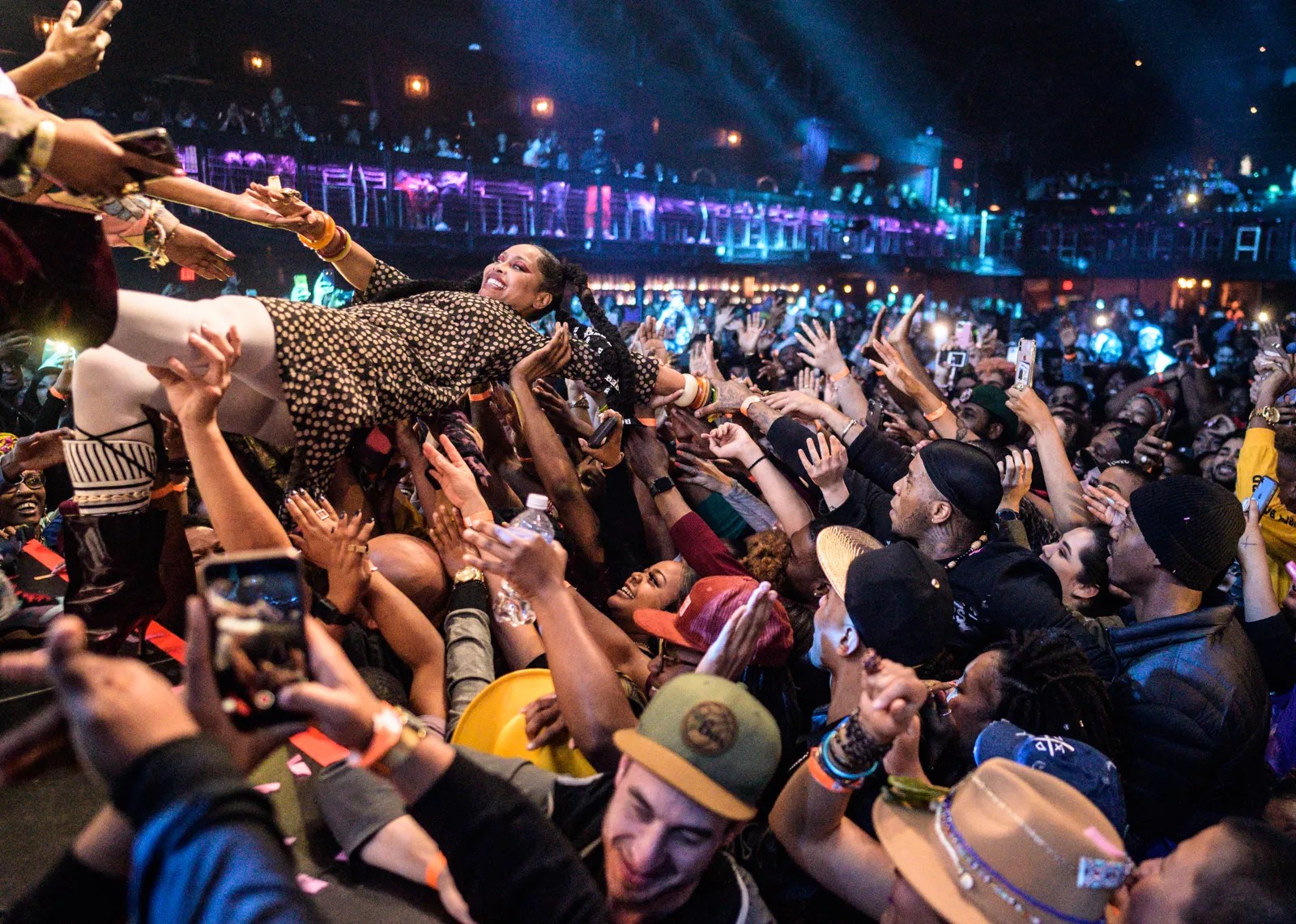
Mike Brooks

Audio By Carbonatix
Let us preface this one with a gentle reminder that we’re just the messengers: New research has deemed Dallas one of the 10 worst music cities in the country. Put down your pitchforks.
The folks over at the real estate company Clever have dubbed Dallas as the No. 5 worst music city in the country; they also listed the town as being second-worst for live music. That’s despite Dallas being named a music-friendly city by the Texas Music Office mere months ago. How quickly things change.
Here are some of the other cities that made Clever’s 10 worst music cities list: Miami is apparently the awfullest, followed by Las Vegas, Houston and San Antonio.
“It’s clear that folks living in these 10 cities aren’t as interested in music experiences as the residents of other metros,” Clever’s article reads. (That’s some serious shade for a town that’s given rise to greats like St. Vincent, Norah Jones, Charley Crockett and the Queen of Big D, Erykah Badu.)
Sure, three Texas metropolises placed poorly on the scale, but Austin excelled by the research’s standards: It came in fourth for best music cities and carried the first spot for live music. Other destinations that performed well include Nashville, Indianapolis and Portland, which took home the gold, silver and bronze, respectively.
We were initially a bit shook by these findings, but let’s dig in a bit to see what it’s all about. A spokesperson for Clever reported that in Dallas, average tickets for major shows cost $158. There are also too few concert venues per capita and a dearth of music festivals within a 100-mile radius on average.
Clever also claims that Dallas has nine “career musicians per 1,000 residents, who make an average hourly income of $41.54.” So, we called up some career musicians to get their take.
Musician and Nelly Furtado’s musical director, Adam Pickrell, who was in California playing with The Growth Eternal at the time of our call, describes Dallas’ music scene in one word: “saucy.”
“Dallas is special because it’s like this weird crossroads of gospel, funk and Southern funk,” Pickrell says. “But, like, it’s Texas, so we have the attitude of Texas, so there’s like a stank that nobody else can have.”
Pickrell didn’t mince words when critiquing the list, calling the decision to name Dallas as the second-worst town for live music “shallow and pedantic.” In Dallas, you can go see titans like jazz saxophonist Shelley Carrol, who’s played with the Duke Ellington Orchestra and toured with Sheryl Crow.
It’s an inclusive scene that’s surrounded by other solid music towns, such as Fort Worth and Denton, Pickrell added.
“Who cares what a list says?” – Adam Pickrell, musician
In Denton, the University of North Texas has one of the largest and most renowned music schools in the country, says Rosana Eckert, principal lecturer of vocal jazz in the UNT College of Music. Many former UNT students have had a positive experience in the gigging scene and can make a great living as a working musician.
Eckert notes that UNT is famous for its One O’Clock Lab Band, a jazz ensemble that once included Pat Metheny Group keyboardist Lyle Mays, who took home many Grammy awards before his death in 2020.
“It’s an exciting place to be with a lot of different musicians from all over the world, and that music infiltrates the whole surrounding community,” she says.
Although it’s admirable that someone is shining a light on cities that support live music, it’s also a difficult thing to accurately gauge, Eckert says. Things like wages, ticket prices, percentage of working musicians and number of venues are tough to pin down.
The list focused on concert venues, but one thing Eckert loves about Dallas is that many of its restaurants, wine bars and hotel lounges offer live music.
“The sheer amount of live music that you can go hear on a nightly basis is really quite impressive,” she says, “but it’s not necessarily in the traditional concert-venue type of situation.”
But the list wasn’t surprising to some. Singer Keite Young says that based on the research’s criteria, the findings didn’t seem too off-base. Young notes that cities like Austin have robust support from the local government, but overall, Dallas just doesn’t “have a real vision for the creative community as a whole.”
Young says Dallas is a corporate city driven by the bottom line, but the cultural output isn’t fitting for a big city. It needs an incubator to equip artists in areas such as legal services, accounting, branding and product strategy, Young says, adding that he’s building an initiative for creatives called The Root Project.
For more than a decade, a good deal of pop music has been produced, written and sometimes performed by musicians from Dallas and Houston, Young says. Still, Big D has room for improvement.
“My hope is that Dallas as a city and owners of the infrastructure here recognize the opportunity that we have to really grow the North Dallas cultural scene, depending upon where we prioritize our investments,” he says. “There’s a lot to be done, and there’s a lot that can be done.”
Pickrell says that being a musician in the Dallas scene is “inspiring” and that the North Texas arts are bolstered by a strong music journalism presence. Even local legends such as keyboardist Bobby Sparks, who’s played with Prince and D’Angelo, show up to help out the newer generations, he says.
Pickrell has been to cities at the top of the list that he says don’t have a community “that’s symbiotically tied to their artists” the way Dallas is. “Who cares what a list says?” he continues. “I’m there, you’re there. We see it.”